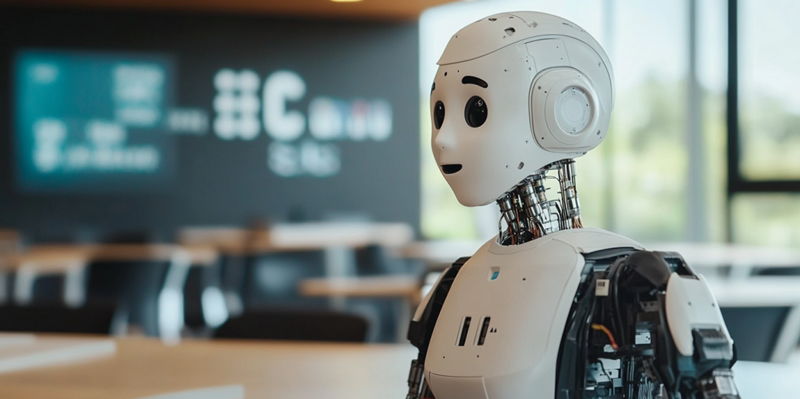The increasing skills gap presents a formidable challenge for businesses across various industries. Rapid technological advancements have heightened this issue, making it difficult for traditional training methods to suffice. These methods, often broad and unscalable, fail to address individual learning needs effectively. Consequently, employees frequently feel overwhelmed, and businesses struggle to fill critical roles that require advanced skills. The mastery of artificial intelligence (AI) emerges as a crucial solution, unlocking the potential of adaptive learning and addressing these challenges head-on. Insights from industry experts Camilia Miccolis, Frédéric Hebert, and Fiona Leteney shed light on how AI-powered adaptive learning is revolutionizing Learning and Development (L&D).
The Growing Skills Gap Challenge
A prevailing concern for modern businesses is the widening skills gap, made worse by the swift pace of technological progress. According to Fiona Leteney, the availability of skills has become the top challenge for 73% of businesses surveyed by the Fosway Group. Findings from the Digital Learning Reality survey reveal a significant change in learning priorities, with upskilling and reskilling surpassing compliance as the main focus. Despite this shift, only 17% of businesses feel that their current learning strategies are very effective in achieving these outcomes. This disconnect underscores the urgency for innovative solutions like AI-driven adaptive learning to address such gaps.
Industries are struggling to keep up with the accelerating technological curve, driven by advancements such as ChatGPT and other sophisticated AI capabilities. As Frédéric Hebert notes, businesses risk falling behind if they do not swiftly adapt to these rapid changes. With the transition to a skills-based work environment, employees must transcend their traditional roles, acquiring new skills to enhance their efficiency and agility in their current positions. This need for continuous skill development further emphasizes the significance of adaptive learning solutions powered by AI, offering tailored and effective training for employees at all levels.
The Role of Adaptive Learning
Adaptive learning stands out as a solution that responds precisely to an individual’s skills gaps, learning styles, and capabilities. This progressive approach enables learners to acquire essential skills while continuing to work, fostering a continually evolving workforce that benefits both the organization and its employees. AI’s contribution to adaptive learning is substantial, as it provides tailored learning experiences through real-time data analysis. This analysis adapts and fine-tunes the content to meet individual learner needs, transforming the entire learning experience.
At its core, the concept of adaptive learning is not entirely new. However, the integration of AI has revolutionized its effectiveness. AI algorithms can meticulously track progress, identify knowledge gaps, and continually adjust learning material to cater to individuals’ strengths and areas for improvement. This adaptive approach results in a highly personalized learning experience, which starkly contrasts with traditional, rigid training methods. By delivering content that meets the specific needs of each learner, adaptive learning significantly enhances skill retention, leading to faster and more efficient upskilling across the workforce.
Benefits of AI-Driven Customization
Fiona Leteney and Frédéric Hebert both underline the manifold benefits of AI-driven customization in adaptive learning. Unlike traditional training models that might waste time on redundant or irrelevant topics, adaptive learning focuses on minimizing unnecessary steps and honing in on core learning areas. This heightened focus not only boosts productivity but also significantly increases engagement among learners. Fiona describes adaptive learning as the pinnacle of personalization, pointing out how high costs have historically hindered effective personalization. AI technologies, however, have now bridged this gap, making personalized learning an affordable reality.
Frédéric expands on this by explaining that AI does more than just speed up the learning process; it makes it infinitely smarter. Adaptive learning constructs a unique learning pathway for each individual based on principles grounded in cognitive science. Active intelligence enables AI to adjust content in real-time according to the learner’s evolving needs, profoundly improving learning efficiency. Consequently, employees receive a personalized and dynamic learning experience, ensuring that they stay ahead in an increasingly competitive job market.
Shifting Business Priorities
The growing skills gap is a major challenge for businesses across various industries. Rapid technological advancements exacerbate this problem, making traditional training methods inadequate. These conventional methods are often too general and not scalable, which means they fail to meet individual learning needs effectively. As a result, employees often feel overwhelmed, and businesses struggle to fill vital roles that require specialized skills. Artificial intelligence (AI) emerges as a crucial solution, providing the potential for adaptive learning to directly address these challenges. Insights from industry experts Camilia Miccolis, Frédéric Hebert, and Fiona Leteney highlight how AI-powered adaptive learning is transforming Learning and Development (L&D). They discuss how AI enables personalized learning experiences, ensuring that training is both efficient and effective. By tailoring education to the individual’s pace and learning style, AI can help bridge the skills gap and empower employees to meet the ever-evolving demands of modern industries.

